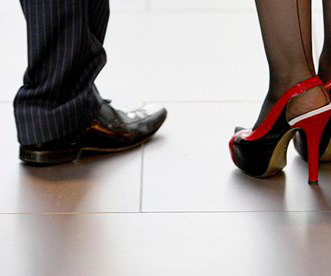Equity measures falling through gender divide
 An independent business advisory council for workplace diversity says gender equity measures have not worked.
An independent business advisory council for workplace diversity says gender equity measures have not worked.
Diversity Council Australia says efforts to get more women into leadership roles have shown very few measurable outcomes.
Meanwhile, a delegation is on its way to the 58th Session of the United Nations Commission on the Status of Women.
Women are still the victims of gender stereotyping, used as scapegoats for structural failings, and occupy virtually the same proportion of executive positions as they did before current equity measures were set up.
“If we did nothing at the moment, with current practices that are in place, it would take about 177 years to reach gender equity in our workplaces - which is pretty unacceptable,” Diversity Council Australia’s Lisa Annese has told the ABC.
The council says efforts so far have been focussed on single points, such as executive board make-up, when in reality each company should have a holistic look at its entire structure.
“Relying on the ‘pipeline’ of women leaders to reach the top, thinking that merit alone will solve the issue, adopting programs that aim to ‘fix women’ and blaming them for not 'leaning in' enough have not and will not change the picture,” Ms Annese added.
“In contrast, the evidence shows that other initiatives – in particular actively sponsoring women into leadership positions, addressing bias at every level, adopting broader definitions of what leadership looks like, and public accountability via reporting on measurable outcomes – will actually deliver results.”
“Conventional wisdom says that the best leaders have good ‘cultural fit’, ‘executive presence’, gravitas, and need to be ‘ideal workers’ available 24/7 but these stereotypes not only favour men but actively work against women,” she said.
“Importantly, these are also not necessarily the best measures of leadership capability.
“For example, research shows that introverts can be just as, and sometimes more effective as leaders than extroverts, caregivers make better people managers, and women in flexible roles are the most productive employee segment.
“It also clearly demonstrates that diverse perspectives add real value – a value lost when ‘cultural fit’ is relied upon,” Ms Annese said.
The Diversity Council says it wants to see; more gender-targeted base-level recruiting; sponsorship rather than mentoring; addressing less apparent factors such as unconscious, individual and organisational bias; public accountability for missing established targets; and a broader, more inclusive definition of leadership capability.
To try and meet these aims, a delegation led by Liberal Senator Michaelia Cash is travelling to New York for the 58th Session of the United Nations Commission on the Status of Women.
The global policy-making body gathers in New York each year to evaluate progress on gender equality and the advancement of women worldwide. It first met in 1947, soon after the founding of the United Nations.
The upcoming meeting, from 10 to 21 March, will include a discussion on reducing violence against women, as well as increasing women’s education and workforce participation.
The Commission on the Status of Women is important because it has a venerable history in achieving real gains for women inside the UN system,” says ANU College of Asia and the Pacific academic Dr Susan Harris-Rimmer.
“This includes drafting the Convention for the Elimination of Discrimination against Women, which is legally binding and has so far been accepted by 187 member States.”
“It will be a privilege to represent the voice of Australian civil society at this meeting,” she said.








 Print
Print